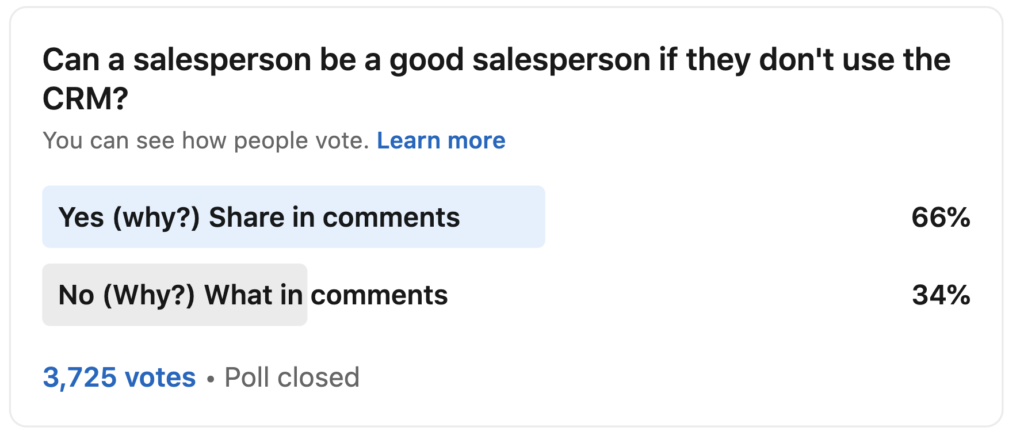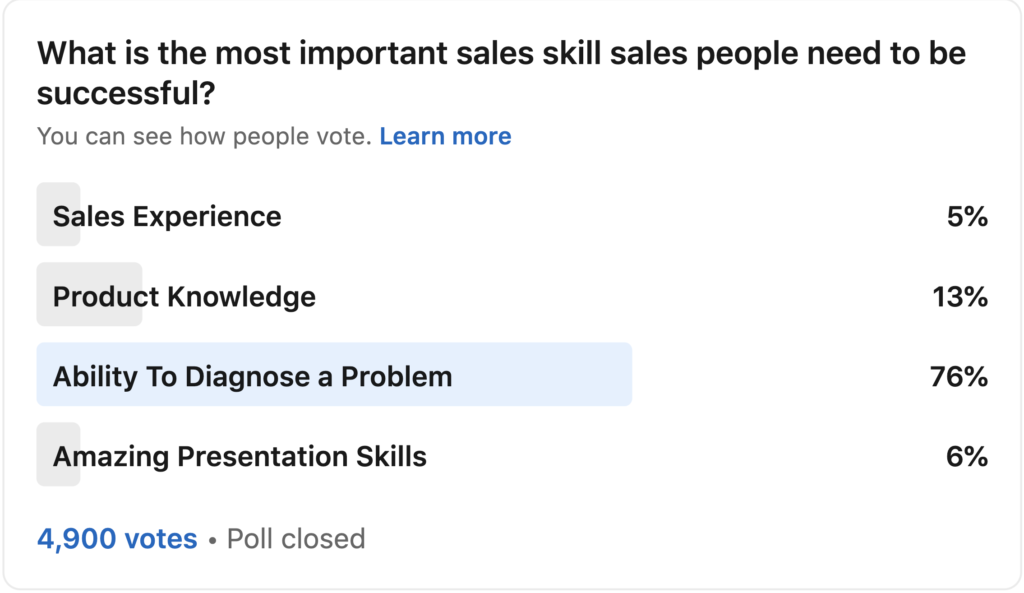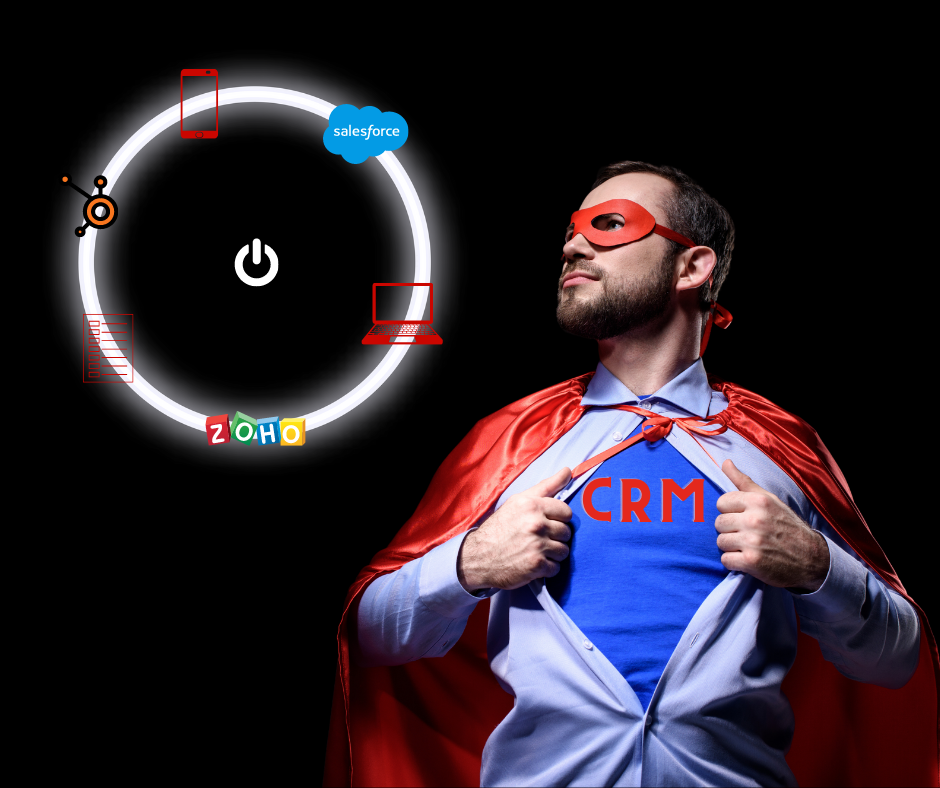The Sales world is desperate for an upgrade. We’ve been holding on to way too many outmoded approaches, ideas, tropes, and concepts.
It’s time sales let’s go of the tired and ineffective belief systems if we’re going to truly deliver the value we say we want to in the 21st-century.
The biggest miss and most unsettling issue facing sales today is their brutal and debilitating contradicting view of what’s most important to sales AND the value of the CRM. Yes, I said the CRM. Stay with me, it will all make sense when I’m done here.
I took a poll on LinkedIn and asked if a salesperson could be good if they didn’t use the CRM. Here are the results:

On the surface, the results aren’t surprising and seem reasonable. Salespeople are notorious for hating the CRM. Sales management is equally infamous for making the CRM a tool the salespeople hate. However, if we take a deeper look, the results here highlight a GROSS problem in sales and one that plagues almost every sales organization in the world.
Now, let’s look at a follow-up poll I did asking what the most important sales skill salespeople need to have in order to be successful.

Notice the results? Seventy-six percent of respondents said the most important skill salespeople should have is the ability to diagnose. In fairness, a number of people added “listening” in the comments as the number one sales skill. With that in mind, I believe listening is number two, as you don’t have anything of substance if you can’t ask the right questions at the right time to create the best “listening content.”
For the purposes of the rest of this post, diagnosing a problem is both the ability to ask questions AND the ability to listen.
Look at both polls. Do you see the contradiction? Can you see how these polls are not consistent? Is the contradiction obvious to you?
These two polls highlight a very disturbing understanding of sales and what it takes to be successful. They can’t be mutually exclusive.
You cannot believe that a salesperson can be successful without a CRM AND believe that the ability to diagnose is the most important sales skill.
Why?
Because diagnosis requires documentation. A powerful, robust, complete, specific diagnosis requires a system that allows you to quickly document, store and retrieve what you learned from the diagnosis. If you don’t have documentation, storage and an easy retrieval system, your diagnosis is rendered useless and you might as well not do it at all.
Is the contradiction more clear now?
If 76% of salespeople believe that diagnosis is the most important sales skill, yet 66% of salespeople believe they can be successful without a CRM, where is that 66% of salespeople putting all the copious notes they take during discovery. How are they quickly and easily able to retrieve their notes? How do they recall the unique and specific environmental challenges they are helping the customer solve? How are they able to recall the root causes of the problems the prospect is having and how can they know the specific KPI’s and prospect metrics? How do they remember all that information 2 months, 3 months, 6 months, 9 months or a year later? How do they remember all that information across, ten, twenty, thirty opportunities or more?
How?
They don’t! And they can’t!
And therein lies the gravity of the disconnect in these two polls.
Nothing highlights the lack of a true discovery being done by salespeople, and even worse, the lack of influence the discovery is having in the average sales call.
In spite of what salespeople have convinced themselves of, few salespeople are doing an effective and thorough discovery. They are not digging deep enough. They are not doing a proper diagnosis of the buyer’s current situation. They aren’t getting a solid understanding of the problems, impacts, and root causes the buyer is struggling with. They are not uncovering where the buyers want to go. They can’t quantify the gap and that’s why they don’t believe they don’t need a CRM to be successful. Even though they don’t realize it, salespeople unconsciously don’t see value in the information they get in the discovery. Therefore, they don’t feel any need to document it in a fashion that makes it easy to retrieve and easy to leverage as the sale progresses.
Until salespeople and sales organizations come to the realization that the most valuable part of the CRM isn’t the “CRM” but the information about the prospects problems, impacts and root causes stored in it, they will continue to dismiss the value of the CRM and underutilize the discovery process.
To simplify, a salesperson canNOT be a good salesperson unless they use the CRM. Without the CRM, they can’t leverage the power of all the information they uncover during a proper discovery and therefore aren’t a salesperson, just simply an order taker. And that’s a conversation for another day!

